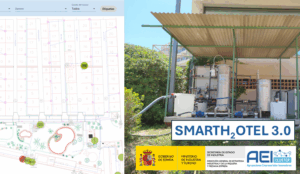Large-scale Language Model Management, known as LLMOps, has become a crucial pillar for companies and the tech sector looking to maximize the potential of these powerful tools. This sophisticated technical field impacts all aspects of contemporary artificial intelligence frameworks, from model conception to deployment in real environments.
LLMOps involves a series of techniques, practices, and tools dedicated to operating and managing massive language models throughout their entire lifecycle. These processes include model training, fine-tuning, constant monitoring, implementation, and proper data preparation. As the scope of LLMOps expands, an increasing number of tools are emerging to adapt both proprietary solutions and open-source regulations.
A popular method that has emerged is providing language model-based services through an API. This practice allows for models to be offered as a service leveraging available infrastructure, thus facilitating their accessibility and usability. Within the core elements of LLMOps, it is crucial to choose the appropriate architectural design and customize pre-trained models to maximize efficiency in terms of costs and time.
Hyperparameter optimization receives special attention in LLMOps, as it improves performance by pinpointing the ideal parameter combination through methods such as random search or Bayesian optimization. In the realm of data management, organizing, storing, and controlling data versions are essential to maintain a smooth workflow throughout the model lifecycle. Data collection, cleaning, labeling, as well as ensuring privacy through techniques like pseudonymization and compliance with regulations such as GDPR and CCPA, are equally crucial aspects.
The LLMOps approach enables companies to enhance their scalability and efficiency by handling a large volume of requests simultaneously, which is vital for business applications. This efficiency promotes more dynamic collaboration among machine learning engineers, data scientists, and other experts, while reducing computational costs through resource optimization.
Additionally, LLMOps minimizes risks by prioritizing data privacy and security, offering transparency and agile compliance with current regulations. LLMOps best practices, ranging from exploratory data analysis to ethical model design, ensure safe and efficient handling of language models.
With a deep understanding of LLMOps, organizations can strategically position themselves in today’s technological landscape, paving the way for future advancements in artificial intelligence within a context where debates on the ethics of automated intelligence are increasingly relevant.
Referrer: MiMub in Spanish









